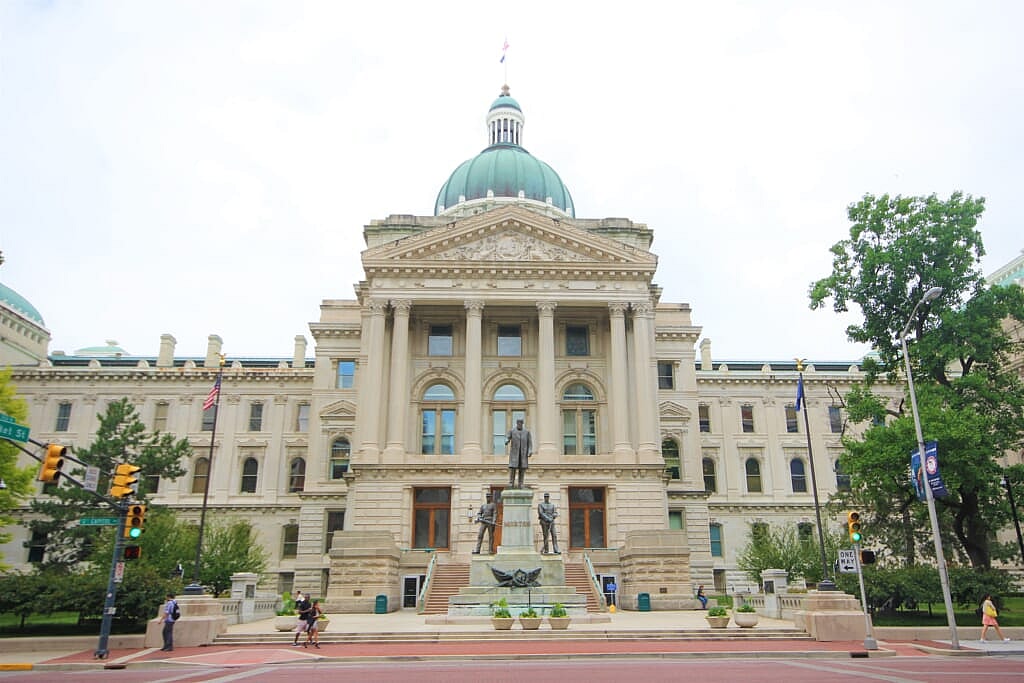The Indiana Legislature passed a bill Thursday that allows the state to withhold funding to cities that fail to protect public monuments and memorials from vandalism, part of an attempt by Republican lawmakers to deter protests that have elevated since the death of George Floyd.
State agencies would be allowed to withhold certain discretionary funds from local governments that don’t prioritize the protection of certain facilities, monuments, memorials and statues, according to the legislation. State police would also be required to assist local governments when investigating people who desecrate any monuments and memorials.
READ MORE: Georgia to erect John Lewis statue in place of Confederate monument
“This is honestly a bill I hope never has to be used, and I hope not a single penny has to be held from a political subdivision,” said Republican Sen. Eric Koch, of Bedford. “But we hold certain monuments and .. memorials with very special significance.”

The Senate measure was amended by lawmakers in the House to also revive language from another bill to make it easier to charge rioters with a felony.
Rioting is raised from a Class A misdemeanor to a level six felony, which carries a prison sentence of up to 2.5 years and a fine of up to $50,000 if there’s resulting property damage or serious bodily injury, according to the provision.
READ MORE: ‘White Lies Matter’ group threatens to turn stolen Confederate statue into toilet if demands not met
The felony further increases to a level five — carrying one to six years in prison — if it results in catastrophic injury, death or damage of at least $50,000.
The bill, which now heads to the governor, is part of a series introduced by Republican legislators that seek to increase penalties for rioting, vandalizing monuments, blocking emergency vehicles and violating curfews.
The proposals came in response to May 2020 protests against racial injustice and police brutality spurred by Floyd’s death in Minneapolis police custody. In Indianapolis, it resulted in several nights of sometimes violent protests, as well as clashes between demonstrators and police.
Have you subscribed to theGrio’s podcast “Dear Culture”? Download our newest episodes now!
TheGrio is now on Apple TV, Amazon Fire, and Roku. Download theGrio today!

